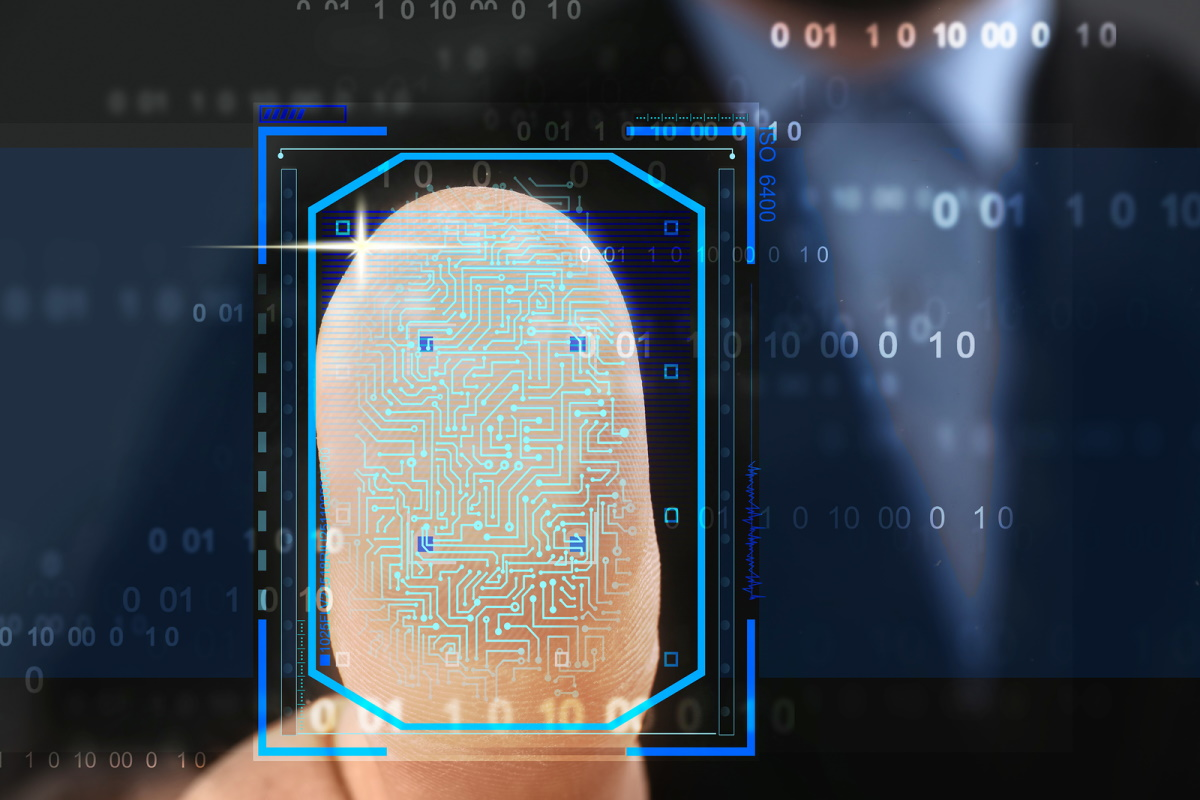When implemented correctly, MFA can reduce the risk of data breaches and hacking significantly
Businesses are facing more and more cyber threats each day. Even though security has become more complex, people still fall prey to basic attacks like phishing scams. If one of your employees falls for an email scam, it can leave your company-wide open to attacks.
It is therefore crucial that you increase security measures and protect your sensitive data. And the best way to do that is with Multi-Factor Authentication (MFA). It is one of, if not the most, effective security solutions and can protect your organization against remote attacks.
What Is Multi-Factor Authentication?  Multi-Factor Authentication applies to businesses across all industries and domains.Courtesy of BigStock.com
Multi-Factor Authentication applies to businesses across all industries and domains.Courtesy of BigStock.com
MFA (Multi-Factor Authentication) adds two or more layers to a company’s access management. Employees and users need to provide more information than just an alphanumeric password.
This means that they must enter their password in the first layer as well as something to grant them access through the second layer. This could be a physical security token, a one-time code on their mobile phone, or an NFC tag.
59% of people use the same password for multiple logins. If their password were compromised, a cybercriminal could gain access to multiple accounts. Having MFA protects against this so that you can assure your employees and clients that their data is safe. Not to mention, it keeps your company safe from data breaches.
There are three main types of authentication. These include:
● something a user knows (a password)
● something they have (one-time code)
● and something they are (a fingerprint, retina).
3 Reasons Why B2C Enterprises Should Opt For MFA
Cyberattacks have grown significantly over the last decade as cybercriminals develop more sophisticated methods of accessing sensitive business data.
Because of this, your IT teams and Managed Security Service Providers (MSSPs) might already use end-point detection software to track users. But, cybercriminals can still take advantage of human error. Adding another layer of authentication would therefore minimize the risk of a data breach significantly.
So, here are three reasons why B2C enterprises should implement Multi-Factor Authentication.
Identity theft is a profitable criminal enterprise and is a threat to any and all businesses.
Mitigates identity theft: Identity theft is a profitable criminal enterprise and is a threat to any and all businesses. It is an easy, low risk, high reward scam – making it one of the fastest-growing types of crime.
Of course, it would be very difficult, if not impossible, for criminals to pose as one of your employees or clients if you use MFA. Even if they had stolen credentials, they would still need the user’s security key, fingerprints, or mobile phone.
Renders stolen credentials ineffective: Cybercriminals prey on weak passwords and one-layer authentication. They target people through email phishing scams, which deceive recipients into providing their credentials. This is a cheap, yet effective, tactic through which cybercriminals can gain access to accounts and critical information.
If you don’t have MFA in place, you are at higher risk for a data breach.
Users are already accustomed to authentication: One of the best reasons to implement MFA is that it will be easy. Your employees and clients probably already use Two-Factor Authentication or MFA to login to their online services like social media, email, and entertainment apps. So, it would not be difficult to add MFA to your systems.
In fact, many large companies already offer MFA to their employees and end-users. For example, Apple iPhones feature face scans and fingerprint scans.
Also, Google end-users can receive one-time codes, or they could install Google Authenticator. This provides users with a timed code, instead of SMS or email. Google also offers a Titan Security Key, a physical device that they use to access login pages.
The Main Benefits of Multi-Factor Authentication
MFA is a massive deterrent to preventing unauthorized access to a company’s network. Hackers would have to deploy multiple strategies to gain access. This would probably not be worth their time if they could move onto an easier target (like companies not using MFA).
According to Microsoft, organizations that use MFA are 99.9% less likely to experience a breach than organizations that do not. If that doesn’t convince you, we don’t know what will.
Additionally, if a hacker attempts to use stolen credentials, the user will receive an access request notification. This means that they could easily report the access request to your IT department. Thus, having MFA adds an extra layer of vigilance and transparency to security to your organization.
If a B2C organization uses MFA, it also helps to build trust. Your customers will feel more secure knowing that you have extra security measures and precautions to secure their data. However, this is only effective if your verification process is smooth and seamless.
How to Apply Multi-Factor Authentication
Multi-Factor Authentication applies to businesses across all industries and domains. It provides you with an additional layer of security where your employees or clients need to use passwords.
This is especially important when users need remote access as they don’t need to be present at a location to log in. This anonymity of remote access presents opportunities for cybercriminals. However, MFA mitigates the risk by authenticating remote users and making sure that they are who they say they are.
Conclusion
In this day and age, it is critical that you add Multi-Factor Authentication to your security protocols. Weak passwords and human error can lead to significant data breaches so you need to protect against this.
When implemented correctly, MFA can reduce the risk of data breaches and hacking significantly – even if credentials are compromised. It is a simple yet highly effective security measure that all organizations should have in place to protect their critical data.
About the author:  Rakesh Soni CEO & Co-Founder of LoginRadius, a leading provider of cloud-based digital identity solutions. Rakesh Soni CEO & Co-Founder of LoginRadius, a leading provider of cloud-based digital identity solutions. The LoginRadius Identity Platform serves over 3,000 businesses and secures one billion digital identities worldwide. LoginRadius has been named as an industry leader in the customer identity and access management space by Gartner, Forrester, KuppingerCole, and Computer Weekly. Connect with Soni on LinkedIn or Twitter.
Rakesh Soni CEO & Co-Founder of LoginRadius, a leading provider of cloud-based digital identity solutions. Rakesh Soni CEO & Co-Founder of LoginRadius, a leading provider of cloud-based digital identity solutions. The LoginRadius Identity Platform serves over 3,000 businesses and secures one billion digital identities worldwide. LoginRadius has been named as an industry leader in the customer identity and access management space by Gartner, Forrester, KuppingerCole, and Computer Weekly. Connect with Soni on LinkedIn or Twitter.

